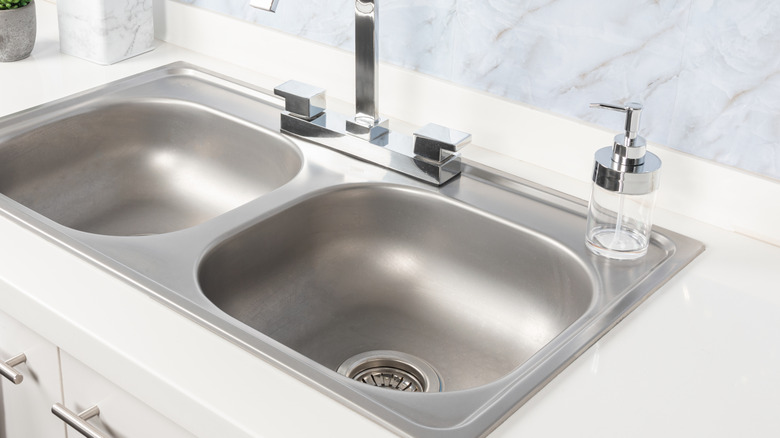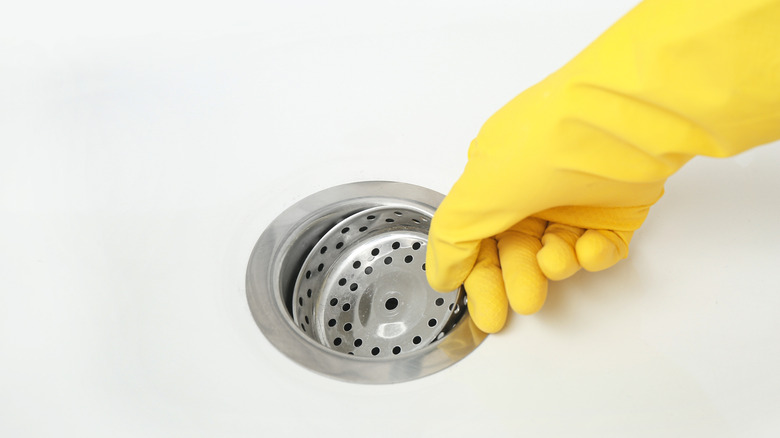The One Weekly Maintenance Task You Need For A Pristine Sink
If you're like most people, your sink is probably one of the most used spots in your home. Whether washing dishes, rinsing vegetables, or brushing your teeth, your sink sees a lot of action. But if you want to keep your sink free of annoying clogs, there is one simple weekly task you need to do: pouring a pot of boiling water down each drain.
Over time, soap, scum, grease, and food bits can build up in your pipes. This buildup might not seem like a big deal initially, but it can slowly cause clogs. By boiling some water and pouring it down your drain each week, you help break down all that gunk before it becomes a significant blockage. You'll also notice a less unpleasant smell around your sink since hot water helps eliminate buildup and lingering odors. You don't need to get fancy with expensive cleaners or spend an hour scrubbing. All you need is some water, a kettle, and a few minutes of your time.
While pouring boiling water is great for loosening grease and food buildup, it can cause damage to certain types of pipes. For example, plastic pipes (PVC) can warp or weaken with repeated exposure to boiling water, and old, brittle pipes might crack under the heat. If you have older plumbing or plastic pipes, it's important to be cautious and avoid pouring water that's too hot, or limit how often you use this method. If in doubt, it's a good idea to consult a plumber to ensure this method is safe for your home.
Tips for maintaining a clog-free sink
After incorporating a weekly routine of pouring boiling water down your sink into your arsenal, a few more tips can help prevent a clogged sink. First things first: avoid pouring grease down your drain. Yes, we get it. Sometimes, you might be tempted to pour that leftover bacon grease straight into the sink after cooking. But resist that urge. Grease hardens as it cools, and when it mixes with other particles like food scraps, it forms a sticky mess in your pipes. Over time, this sticky mess can start a significant clog.
Using chemical drain cleaners is another mistake people make with their sink. These cleaners are marketed as a quick fix for clogs but can cause more harm than good. The chemicals in those drain cleaners can damage your pipes, mainly if used frequently. Plus, they don't always get to the root of the problem. They might clear out a minor blockage, but if you have more significant issues lurking in your pipes, the chemicals won't fix them. Instead, stick to simple natural methods like pouring water down your drain regularly or using a plunger.
Finally, invest in drain strainers. These small mesh devices sit on your sink drain and catch hair, food scraps, and other debris before they go down the pipe. This makes it much easier to prevent clogs before they start. They are also easy to clean. Just give them a quick rinse after you've used your sink, and you'll prevent a lot of the mess that might build up in your pipes.

